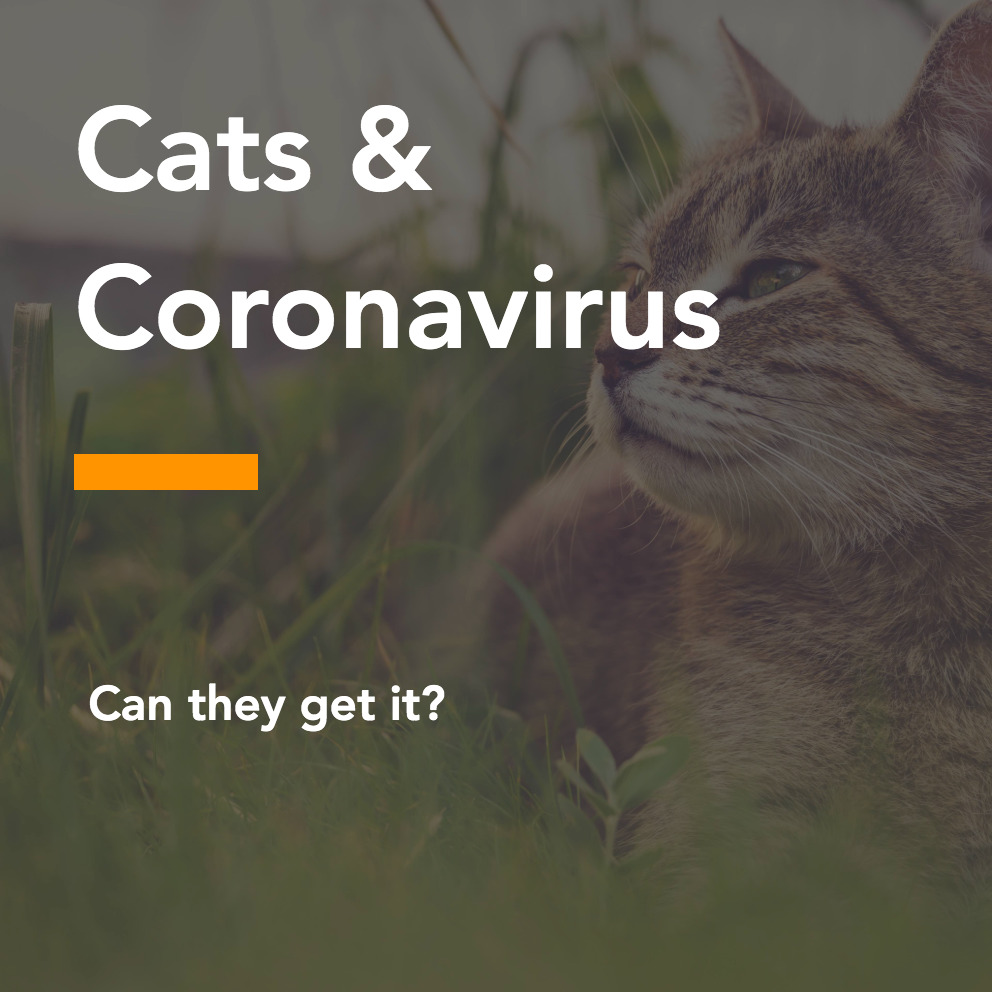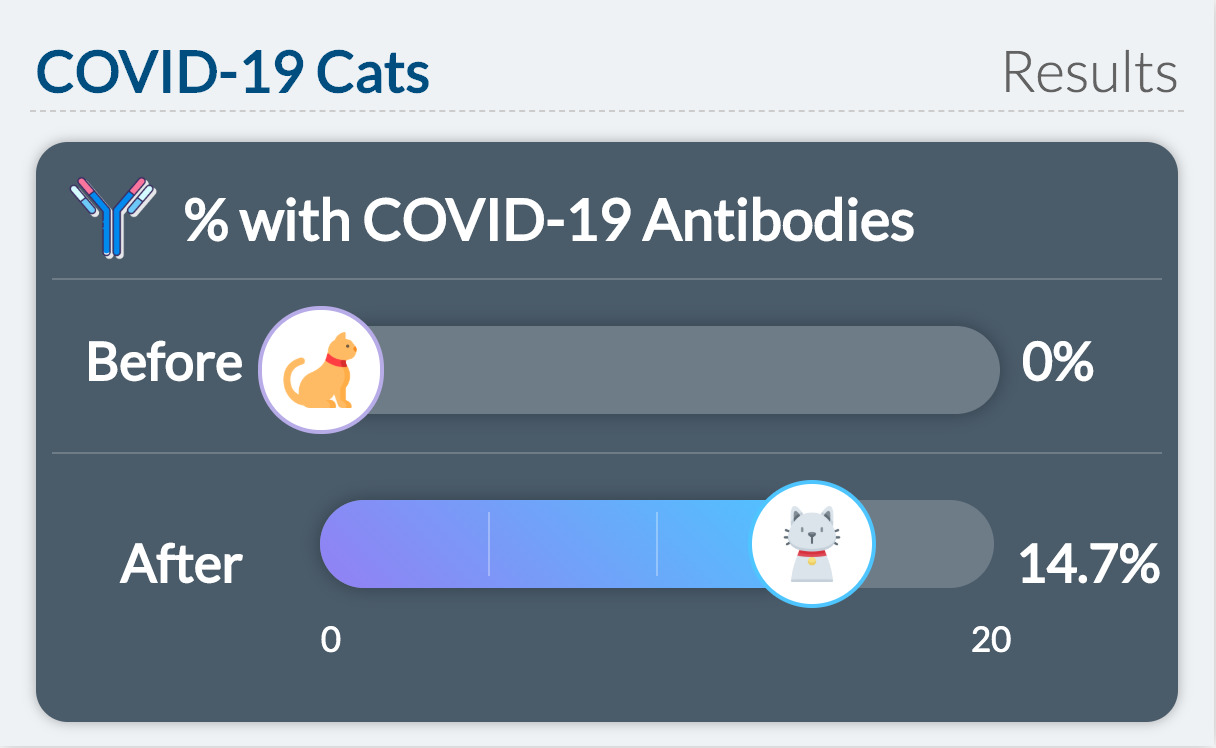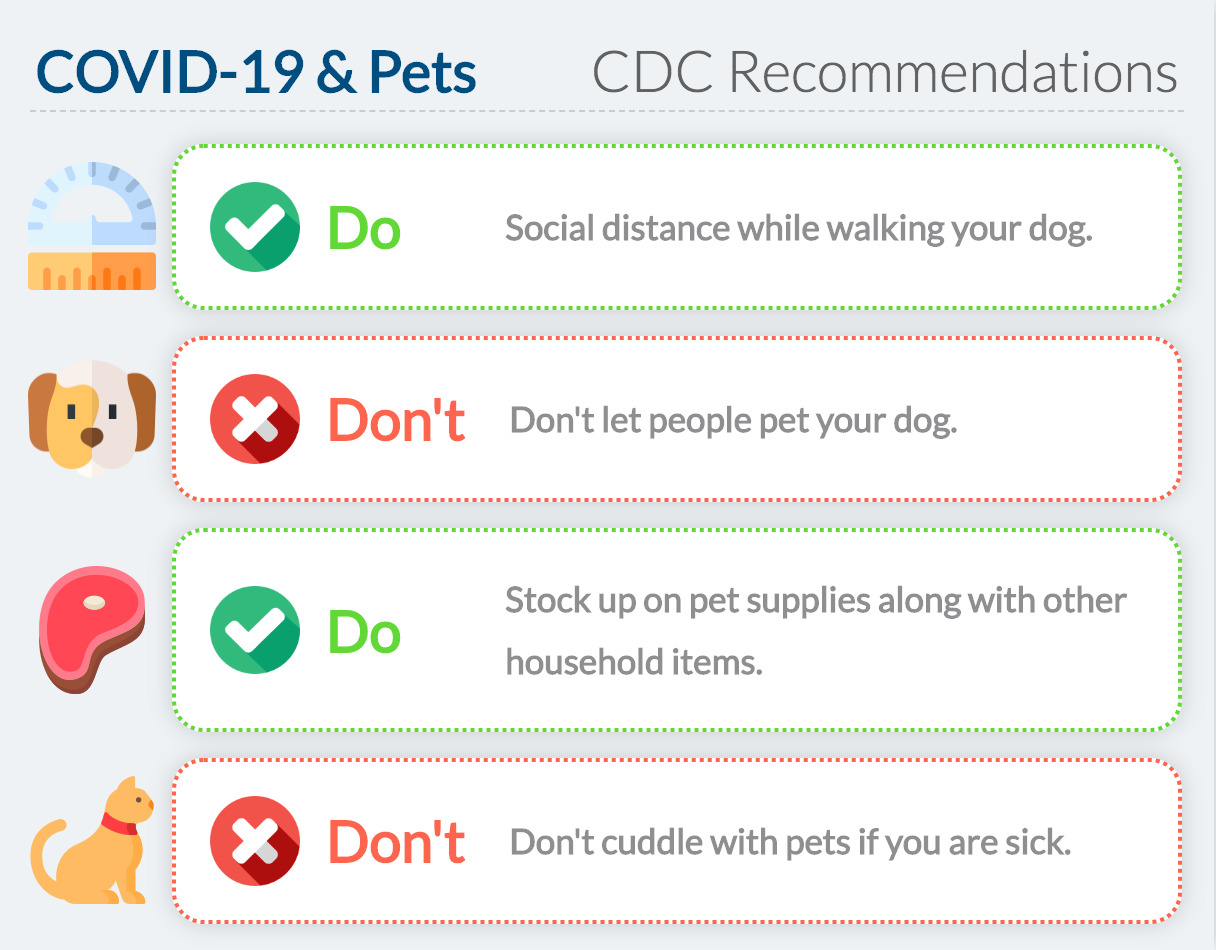In late March, a tiger living at the Bronx Zoo began coughing and wheezing. Soon after, all the other animals in the tiger’s enclosure showed symptoms too. Turns out, the tiger tested positive for coronavirus.
This is not an isolated incident. Two dogs and a cat in Hong Kong, a cat in Belgium, and two cats in New York have reportedly tested positive for the virus as well.
In this article, we will outline a study of cats in Wuhan and list some ways to keep you and your furry friends safe.
What do we know so far?
In Wuhan, China, scientists tested cats for the COVID-19 virus within time intervals before and after the official outbreak in late December 2019. They used an antibody test, which signals whether or not the cat currently or has ever had the virus.
They tested cats in multiple locations such as pet hospitals, shelters, and in the homes of COVID-19 positive owners. They tested 141 cats in total.
Source
All 39 cats tested before the outbreak were negative for coronavirus. This fact affirms that the antibody test did not give false positives. It also suggests that COVID-19 was not spreading between cats without our knowledge in the months before we detected the outbreak.
After the outbreak, 15 out of the 102 cats tested positive. Cats with coronavirus-positive owners had the highest levels of antibodies. This is an indicator that the cats were infected by humans because the levels of antibodies were higher in the cats with the most human contact.
Even though this study had a small sample of cats, it does suggest that cats can contract the virus from humans. We do not know if the cats in pet hospitals or shelters got the virus from humans or other cats.
As of now, there is no evidence to show that cats can spread the virus to humans. Experts believe the cat was infected by a human, either in or outside of the home. What we do know is that our animals are vulnerable to the virus. The CDC has recommended a few guidelines to ensure that you and your pet stay happy and healthy.
Source
What does the CDC say about this?
“
“If you are sick with COVID-19, avoid contact with your pet, including petting, snuggling, being kissed or licked, and sharing food or bedding. If you must care for your pet or be around animals while you are sick, wash your hands before and after you interact with pets and wear a cloth face covering.”
CDC






































